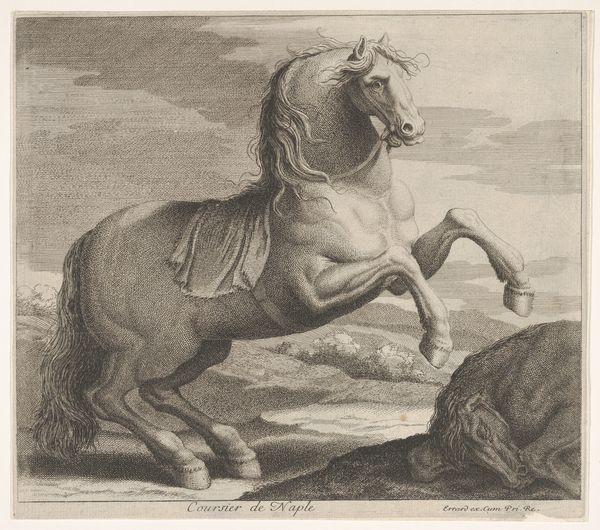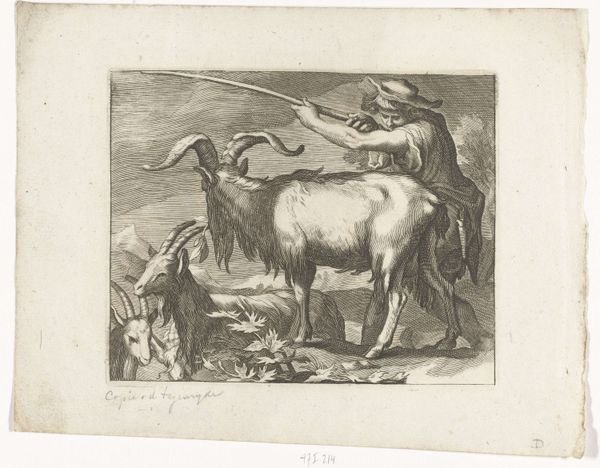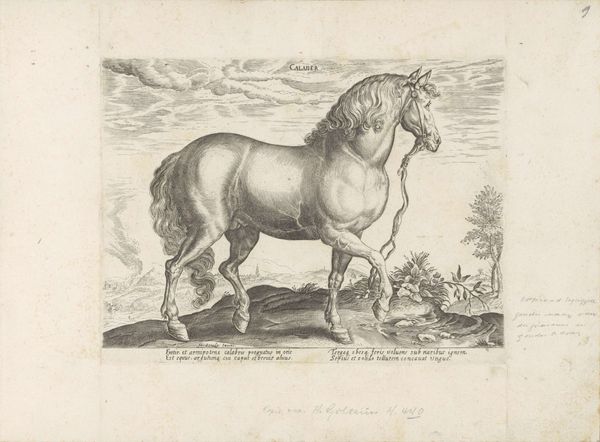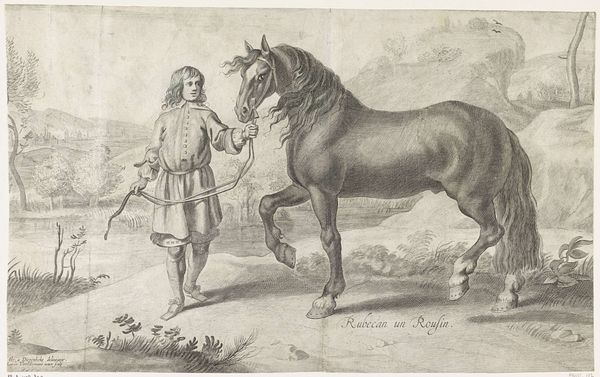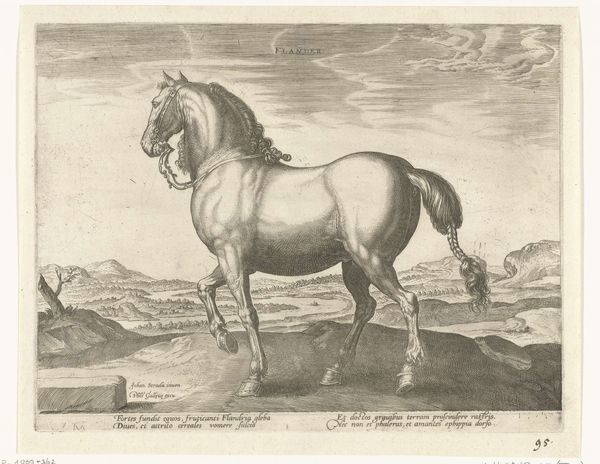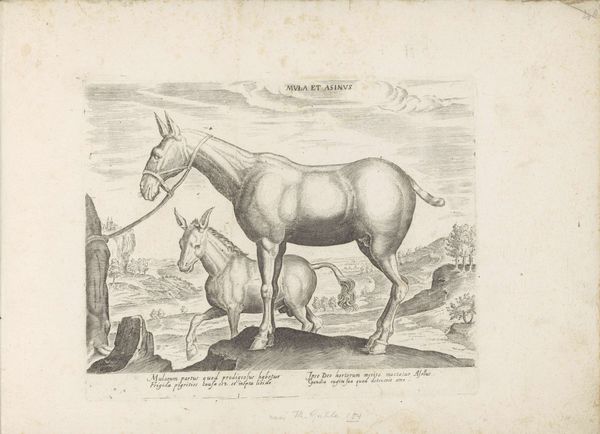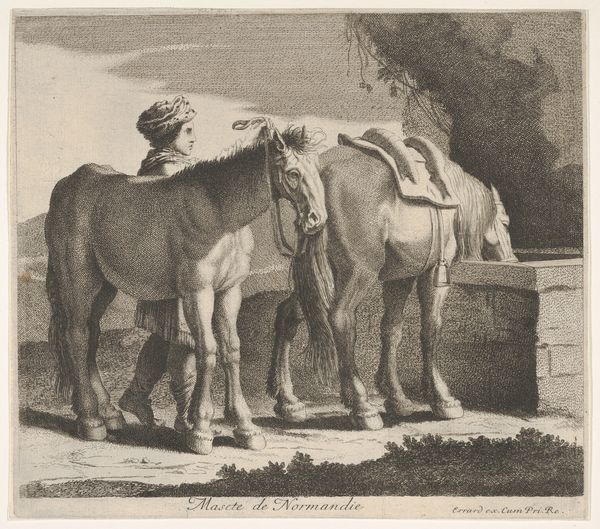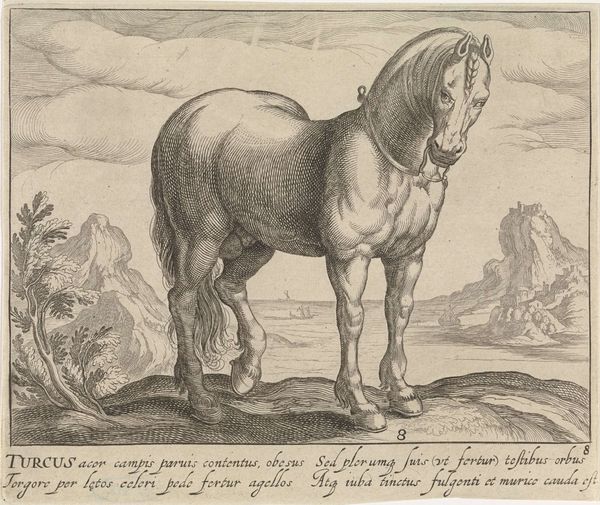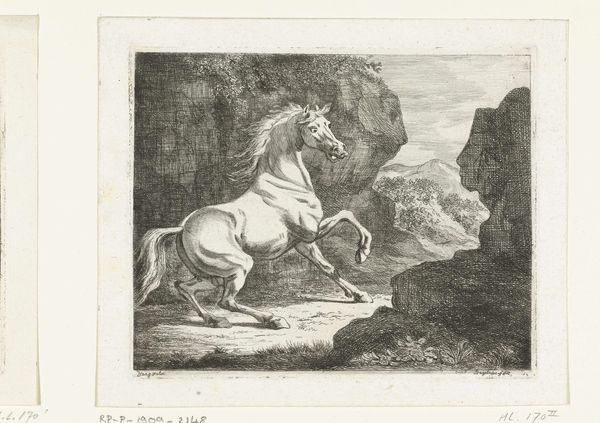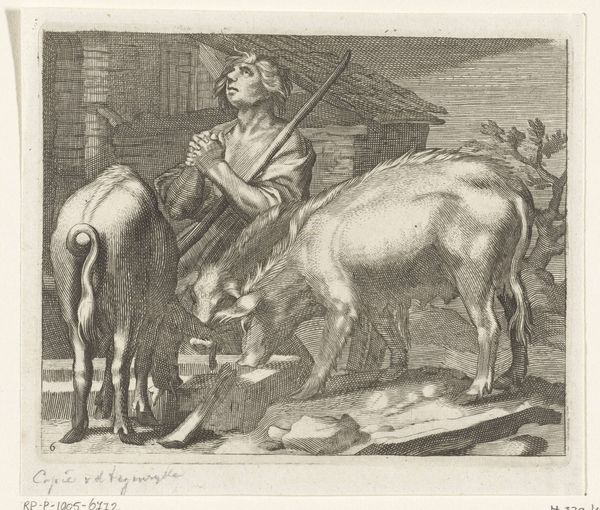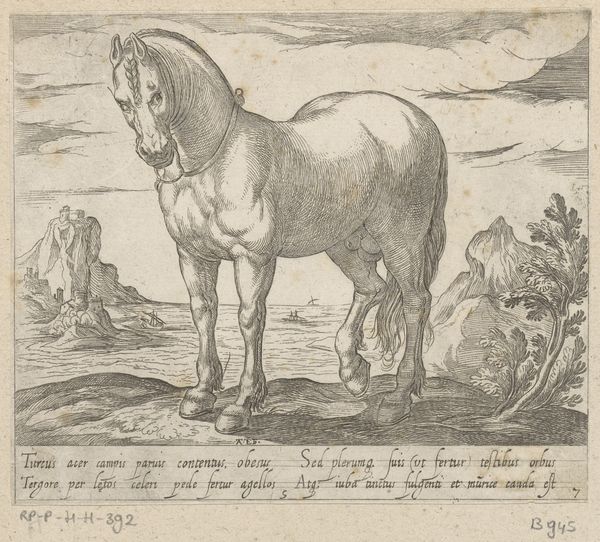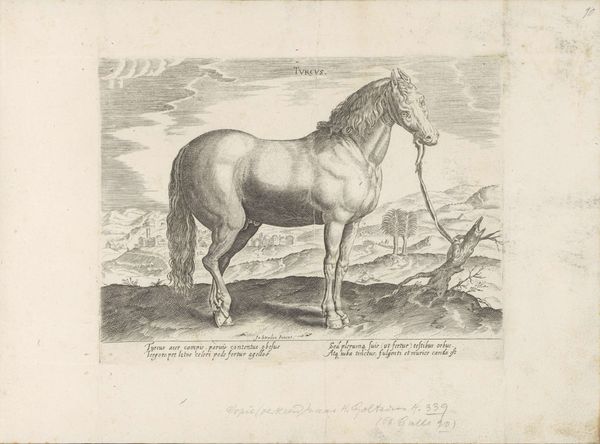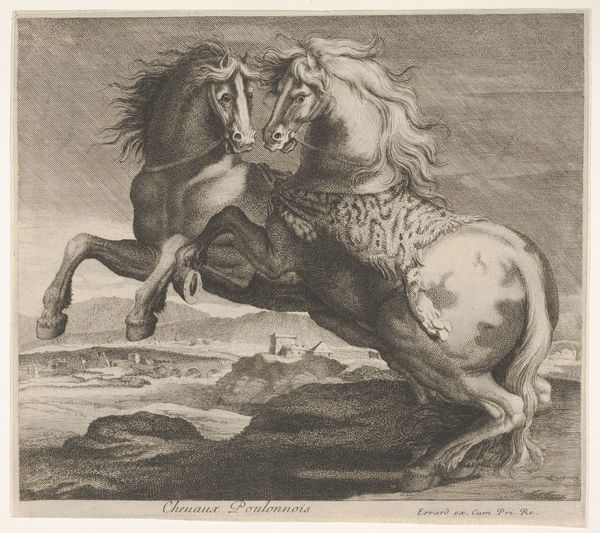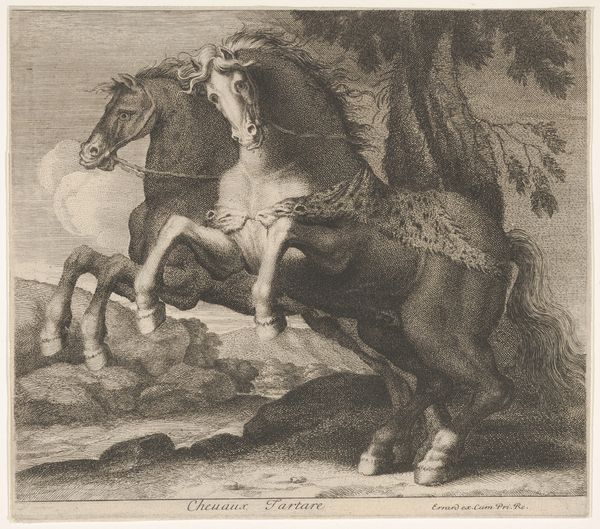
drawing, engraving
#
drawing
#
baroque
#
landscape
#
figuration
#
horse
#
history-painting
#
engraving
Dimensions: height 206 mm, width 233 mm
Copyright: Rijks Museum: Open Domain
Editor: This is "Soldier Equipping a Horse" by Charles II Errard, made sometime between 1616 and 1689. It's an engraving. There's a strange stillness about it, despite the soldier and the horse seemingly preparing for action. What significance do you see in their interaction? Curator: Note how the horse almost mirrors the soldier's pose, a subtle echo suggesting a deep connection. Consider, too, the Baroque era's fascination with classical antiquity. Does the soldier's attire evoke images of Roman or Greek warriors? Editor: Definitely Roman. The helmet and the sandals are pretty clear signifiers. Does that connect it to specific ideas circulating at that time? Curator: Precisely! Think of the power and authority associated with those empires. Errard subtly alludes to those ideals, linking the soldier’s readiness with the glorious past. But also, is he equipping or comforting the horse? Notice the tenderness in his gesture. What do you think that conveys? Editor: I see what you mean! Maybe it’s about the cost of war. The preparation is as important as the act of fighting, with the human element emphasized through his gentle action. Curator: Indeed. The horse becomes more than just a tool of war; it's a partner, bearing the emotional weight alongside the soldier. By portraying them together, Errard bridges the gap between history and the personal experience of conflict. Do you agree that this tender image can represent memory as much as historical record? Editor: I think so, especially because there's that contrast between the readiness and the quiet connection between man and animal. That makes me wonder about other layers in historical artworks. Curator: Excellent. It is through these symbolic interactions that artwork endures, prompting conversations across centuries about shared human experience and cultural memory.
Comments
No comments
Be the first to comment and join the conversation on the ultimate creative platform.
